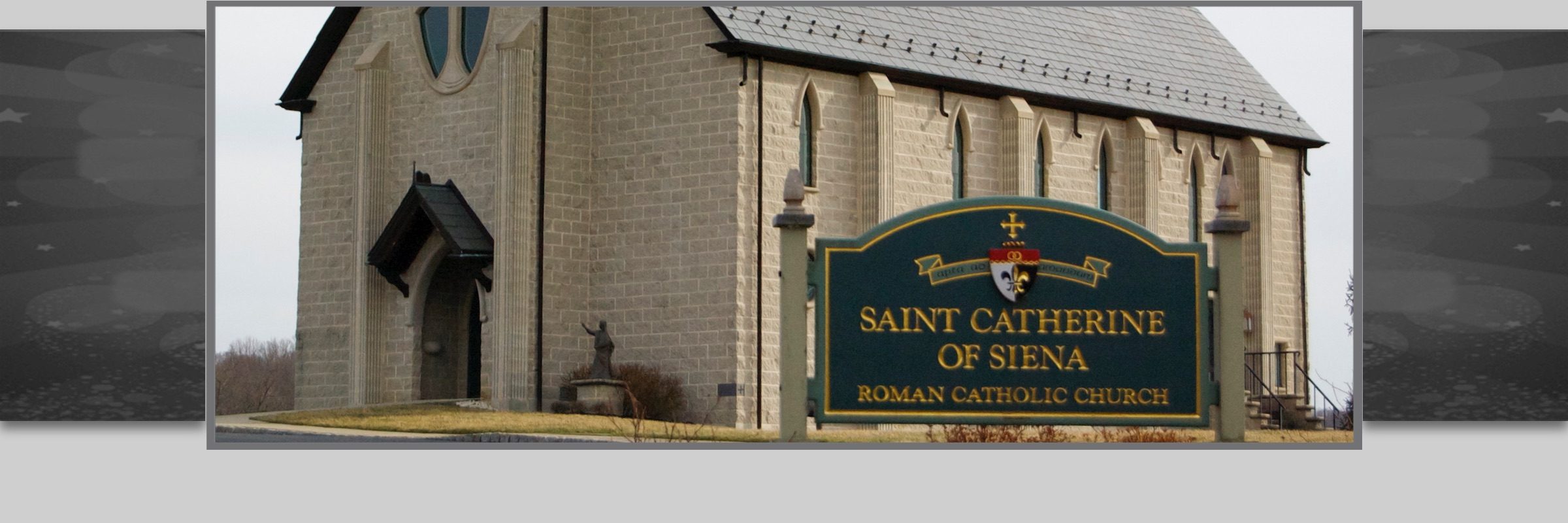
First Sunday of Lent
On Ash Wednesday we started the Season of Lent with the imposition of ashes on our foreheads. The ashes were imprinted on our foreheads with a sign of the Cross. It is meant to remind us of our identity and relationship with God. First, it means we belong to God. We are his children. Second, as his children, we have the responsibility to make Jesus’ presence felt and experienced in this world. Third, given the identity and relationship that we have with God, as His children, we are constantly called to holiness of life. (Read more…)
Ash Wednesday
This Wednesday, February 26th there is a good chance you’ll see a co-worker or someone at school or at the store walking around with ashes on their forehead. So, what’s up with that?
February 26th is Ash Wednesday, the day that marks the beginning of Lent, a period of fasting and reflection leading up to Easter. The day gets its name from the practice of placing ashes on one’s forehead as a celebration and reminder of human mortality and as a sign of repentance. (Read more…)
How Are the 40 Days of Lent Calculated?
Why Sundays don’t count during Lent
The question: the period of prayer and fasting in preparation for Easter is 40 days long, but there are 46 days between Ash Wednesday, the first day of Lent in the Roman Catholic Liturgical calendar, and Easter. So how are the 40 days of Lent calculated?
The answer takes us back to the earliest days of the Church. Christ’s original disciples, who were Jewish, grew up with the idea that the Sabbath – the day of worship and rest – was Saturday, the seventh day of the week, since the account of creation in Genesis says that God rested on the seventh day. (Read more…)
World Marriage Day
On Sunday, February 9th, we celebrate World Marriage Day to honor the husband and the wife as head of the family – the basic unit of society; and to salute the beauty of their faithfulness.
The annual observance of the marriage day takes on new meaning these days as the sacrament and institution and meaning of marriage are facing crucial new challenges from within and without.
More than ever, couples are experiencing problems arising from a widespread mistaken understanding of what marriage truly is; and unity and indissolubility are being replaced by personal fulfillment. (Read more…)
First Reconciliation
On Saturday, January 11th and Saturday, January 18th, seventeen of our First Holy Communion children made their First Sacrament of Reconciliation. What a joy and privilege it was to see them at this Sacrament!
We also encourage the whole family to come to church with the child and to go to the Sacrament of Reconciliation too. I’m pleased to say that I was able to hear the confession of some families that morning. This was a great example not only to the children in the family but indeed to other children and adults present in church – including myself. (Read more…)
Mass Schedule
- Mon, Tues, Thurs, Fri:
8:00 a.m. (Church) - Wednesday:
7:00 p.m. (Church) - Saturday:
4:30 p.m. (Church) - Sunday:
8:00 a.m. (Church)
9:30 a.m., 11:00 a.m. (Church)
Upcoming Events
no event
Calendar
Word of God Project
Recent Posts
Archives
- April 2020
- March 2020
- February 2020
- January 2020
- December 2019
- November 2019
- October 2019
- September 2019
- August 2019
- July 2019
- June 2019
- May 2019
- April 2019
- March 2019
- February 2019
- January 2019
- December 2018
- November 2018
- October 2018
- September 2018
- August 2018
- July 2018
- June 2018
- May 2018
- April 2018
- March 2018
- February 2018
- May 2012
Religious Ed Forms
Handbooks
Volunteers and catechist info forms
Copyright © 2026 · All Rights Reserved · St. Catherine of Siena
Nonprofit Website by GivingPress · RSS Feed · Log in

Last Updated: by
Second Sunday of Lent
Today we celebrate second Sunday of Lent. Lent is the time, approximating forty days, of reflection and penance leading up to Easter. Pope Francis stated, “Lent comes providentially to reawaken us, to shake us from our lethargy.” He said that Lent is meant to wake up Christians and to help them see that God can give them strength to change their lives and their surroundings.
One of our leading Catholic scholars has described Lent as the desert time in the Church year. He reminds us that the desert time can be for us an opportunity to reflect on who we are and why we are here. It takes many of us a while to absorb the reality of the Christian vision: that we are children of God called to announce in word and deed the favour of the Lord. But the desert can also have its dangers. It can be a place of desolation, a place of loneliness. And we certainly can be tempted when we are vulnerable and isolated. Each of us struggle against temptation and sin, and for many of us it is a daily struggle. We are challenged to admit that we are all sinners and we need help in resisting our temptations. We are encouraged to take Lent seriously and acknowledge our own shortcomings, and guard against them. (Read more…)